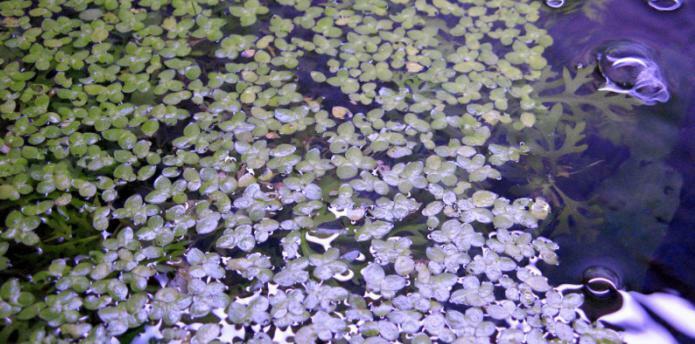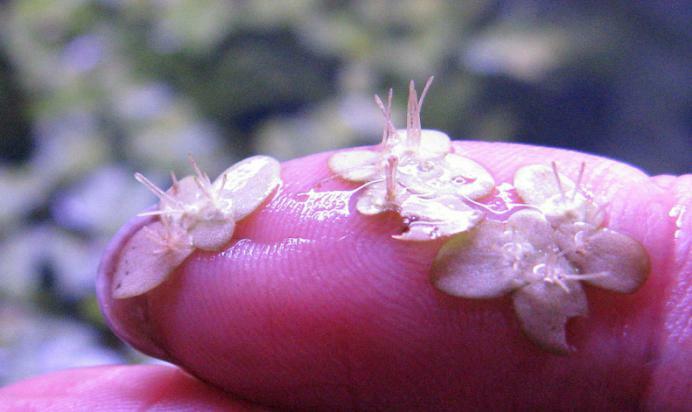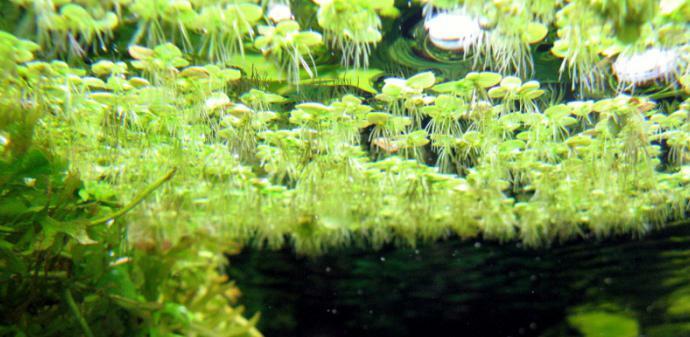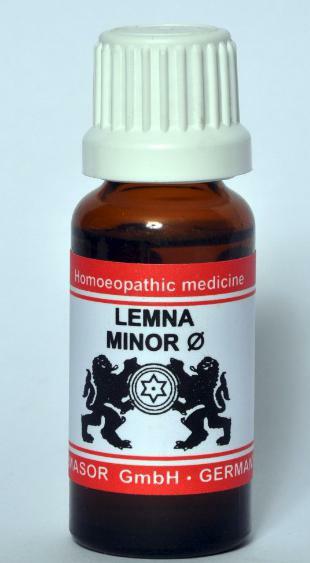Swamp duckweed: medicinal properties and application
One of the smallest plants can be called duckweed. This swamp grass is also called the frog's foot. It sprouts green carpets all over the watery surface. For sure, every fisherman in the summer season came across whole colonies of small leaves, densely covering the water bodies.

Sometimes it is too much, which becomes an obstacle to catching fish. An unpretentious perennial plant that prefers eco-friendly standing or low-flow water, reproduces very quickly, especially in favorable climatic conditions. It differs from other grasses by mooring duckweed in the absence of a stalk. It consists of one continuous plate with one single shoot, which then grows from the edge of the plate. It should be noted that the plant blooms very rarely. It has long been used for fishing. This valuable food is served by various waterfowl( geese, ducks), as well as domestic cattle( pigs, chickens, cows).The composition of the duckweed is close to the composition of cereal crops, and the content of proteins in the grass exceeds the amount in some types of legumes.
This is a fairly useful plant that a person uses in cooking for cooking first courses and salads. Also, it is dried and made spicy seasonings for meat and fish. Valuable duckweed is valued by folk healers at the expense of a rich content of trace elements.
Biochemical composition of

. More recently, they began to write about the medicinal properties of the frog paw. Although the anti-allergenic herb has long been worthy of attention, since it contains many trace elements vital to the human body, such as calcium, bromine, iodine, iron, protein, copper, vanadium, cobalt and radium.
Scientifically proven that it contains vegetable protein, fiber and fats. Laboratory experiments confirm the presence of flavonoids and triterpene compounds, which have an anti-carcinogenic effect. In the plant, the predominant amount of amino acids, glutamic and aspartic acids, as well as vitamins of group A, B, E.
Pharmacological properties of
Scientists have established that the marsh duckweed( photo is available in the article) shows not only antiallergic effect, but also has choleretic, carminative, expectorant, diaphoretic, diuretic and antitumor properties. Official medicine uses plant-based drugs as an analgesic, anti-inflammatory, antibacterial and anthelmintic.
Application in medicine

Alcohol tinctures have been widely used in the treatment of respiratory diseases, as well as chronic colds, hepatitis and rheumatism. Effective duckweed with swelling, erysipelas, glaucoma, polyps, vitiligo, asthma, gout, hemorrhoids, benign and malignant formations.
Infusions and decoctions have a general strengthening and hemostatic effect. Removes snake and mosquito bites of duckweed marsh. The use of grass gives a positive result in purulent wounds and psoriasis. Healers and traditional healers recommend the plant for prolonged and chronic inflammatory processes. Practice has verified that the herb helps to get rid of bronchial asthma( in combination with medications).
Contraindications
It would seem that an inoffensive and small swamp duckweed can not cause damage to the body and provoke undesirable consequences. But this is a profound error. Like all medicinal plants, she also has some contraindications. It is undesirable to use it in vegetative dystonia and some nervous disorders, since the herb irritates. No side effects were recorded with its use.
Prepare homemade drugs

If you have decided to collect the plant by your own hand, then we recommend it only in clean water, then thoroughly rinse and dry. Then you can start the process of preparation. Although you can not bother and buy a ready tincture or dry leaves in the pharmacy.
Alcohol tincture
Mix half a liter of vodka and marsh duckweed( 10 large spoons).The liquid must be insisted for seven days in a place protected from sunlight, then strain and consume 30-50 drops two hours after eating, with plenty of water. If the taste seems too nasty, then you can eat honey or jam.
Healing decoction of
Dry leaves of grass( 10 g) and water( glass) are connected. Boil the solution, let it stand for an hour. Take three times a day for 100 ml( before meals).
Water tincture
In 250 ml of water, add a spoonful of dry plant. It should be boiled, insist an hour and drink in the filtered state 3-4 times a day for ½ cup. The same solution is wiped by inflamed eyes, purulent wounds, ulcers and various tumors.
Ointment
Connect 9 parts of dry leaves of grass and a piece of butter. It is necessary to mix to a homogeneous mass, store in a glass container. Lubricate the nasal passages. Removes inflammation in the ears.
The first positive results will appear in 30 days. These dumplings possess unique medicinal properties. Treatment should be performed strictly according to the prescribed prescriptions and preferably after consulting a specialist.
